Why backpacking is the best way to travel: Backpacking has been gaining popularity in recent years as a form of travel, and for good reason. It offers a unique and memorable experience, unlike any other. In this blog, we’ll be exploring the definition of backpacking, the benefits it offers, and why it’s quickly becoming a favorite way to travel.
backpacking refers to a form of travel where one carries all their belongings in a backpack and travels to various destinations, often for an extended period of time. It’s a way to see the world and have new experiences while also being cost-effective and flexible.
Backpacking offers a number of benefits compared to traditional travel methods. It’s cost-effective, allows for flexibility and spontaneity, and provides a chance to immerse oneself in the local culture.
It also offers physical and mental health benefits, making it a well-rounded travel option. The purpose of this blog is to provide a comprehensive guide for those interested in backpacking.
We’ll cover everything from the basics of backpacking to tips for first-time backpackers and popular destinations. By the end of this blog, you’ll have a better understanding of why backpacking is the best way to travel and be inspired to start your own backpacking adventure.
Why backpacking is the best way to travel
1. What is Backpacking?
A. Definition of backpacking
Backpacking is a form of travel where one carries all their belongings in a backpack and travels to various destinations, often for an extended period of time.
It’s a way to see the world and have new experiences while also being cost-effective and flexible.
Backpacking allows individuals to travel on a budget, as they can save money on accommodations by camping or staying in budget-friendly hostels.
The freedom to move about and change plans at a moment’s notice is another advantage of backpacking.
This type of travel allows individuals to immerse themselves in local cultures, meet new people, and gain a unique perspective on the world.
Additionally, backpacking can be a physically and mentally challenging experience, pushing individuals out of their comfort zones and helping them to grow as individuals.
Overall, backpacking is an excellent opportunity for anyone looking to have a truly transformative travel experience.
B. Backpacking vs traditional travel
Traditional travel often involves staying in hotels and going on organized tours, while backpacking allows for a more immersive experience.
Backpackers have the freedom to choose their own itinerary and travel at their own pace, allowing for a more personal and unique experience.
They can interact with local communities, try authentic local cuisine, and engage in activities that are off the beaten path.
Backpacking also offers the opportunity for meaningful cultural exchange and the chance to gain a deeper understanding of the places being visited.
Furthermore, backpacking can often be a more budget-friendly option as accommodations and activities can be arranged on a more flexible and affordable basis.
By stepping outside of the typical tourist experience, backpackers can gain a more authentic and enriching experience of the world.
This type of travel often leads to lifelong memories and a deeper appreciation for different cultures and ways of life.
C. Essential backpacking gear
When it comes to backpacking, it’s important to have the right gear. A good backpack, comfortable shoes, and a waterproof jacket are some of the essentials. It’s also important to pack light, as you’ll be carrying everything on your back.
Additionally, you should also consider the weather and terrain you’ll be facing. Bring extra layers if you’re expecting cold temperatures, and pack proper hiking shoes if you’ll be trekking through rough terrain.
Don’t forget important items like a map, compass, and first aid kit, as well as a headlamp and extra batteries for night-time adventures.
Make sure to pack food and water to sustain you on your journey, and consider bringing a camping stove if you plan on cooking your own meals.
And lastly, don’t forget to pack a positive attitude and a sense of adventure – these are the most essential items of all!
Also see: Backpacking with Eggs
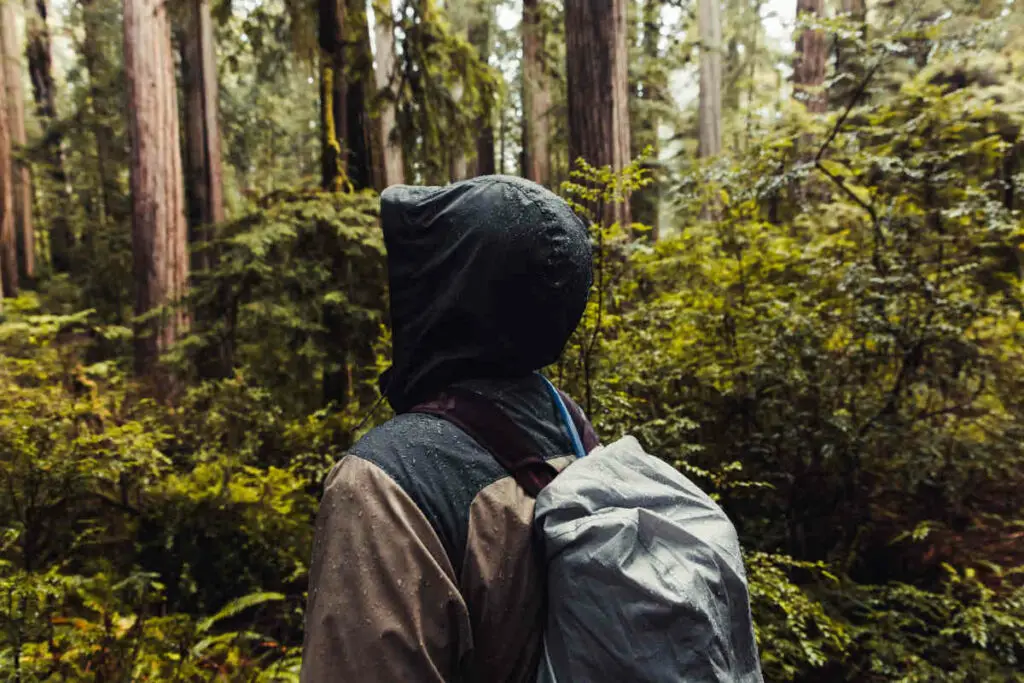
2. Benefits of backpacking
A. Cost-effective travel
Backpacking is a cost-effective way to travel, as it allows you to save money on accommodation and transportation. By staying in hostels or camping, backpackers can save money on accommodation, and by using public transportation, they can save on transportation costs.
Additionally, eating local food and cooking your own meals instead of dining in restaurants can also help reduce expenses.
By being mindful of their budget, backpackers can stretch their travel funds and make the most out of their trip. The freedom and flexibility that comes with backpacking also allows for unique and authentic travel experiences.
B. Flexibility and spontaneity
Backpacking offers a level of flexibility and spontaneity that traditional travel often lacks. Backpackers can change their plans at any time and go wherever they want, whenever they want.
This allows for a more spontaneous and exciting travel experience. Backpacking allows for a more immersive cultural experience as travelers are able to stay in local hostels, interact with locals, and try authentic cuisine.
This type of travel also tends to be more budget-friendly, as travelers can save on accommodation costs and choose to splurge on unique experiences instead.
The freedom and flexibility of backpacking creates a sense of adventure and allows for personal growth and self-discovery.
C. Immersing yourself in the culture
Backpacking allows for a deeper immersion in the local culture, as backpackers often stay in local accommodation and interact with locals in a way that traditional tourists may not.
This allows for a more authentic and memorable travel experience. Backpacking can also be a more budget-friendly option for travelers, as it often involves camping, cooking your own meals, and taking public transportation.
This can not only save money but also offer a unique and adventurous way to see the world.
Furthermore, backpacking offers the freedom and flexibility to change plans and go off the beaten path, leading to unexpected and truly life-changing experiences.
D. Physical and mental health benefits
Backpacking offers physical benefits, as it involves walking and hiking, and mental benefits, as it allows for time to reflect and recharge.
It’s a great way to disconnect from the stresses of daily life and focus on your well-being. Backpacking also provides opportunities for exploration and adventure, allowing you to experience new landscapes and cultures.
It can also be a social activity, as it allows for bonding with friends or making new connections with fellow hikers. Whether solo or with a group, backpacking is a fulfilling and enriching experience that combines physical activity and mental rejuvenation.
Also see: Waterfall in Mexico
Best back pack
Top pick
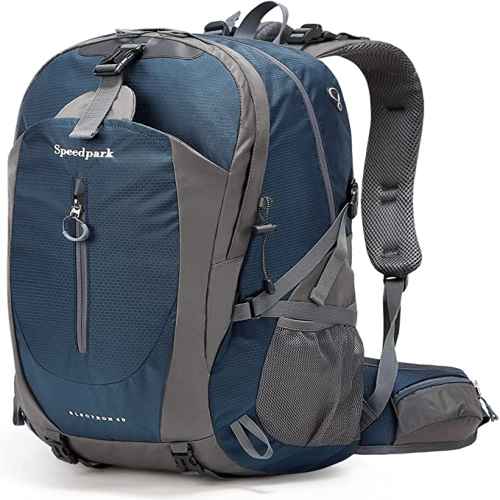
Editor’s choice
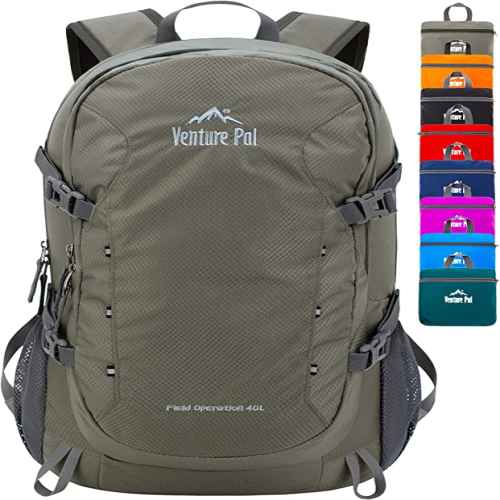
Best value
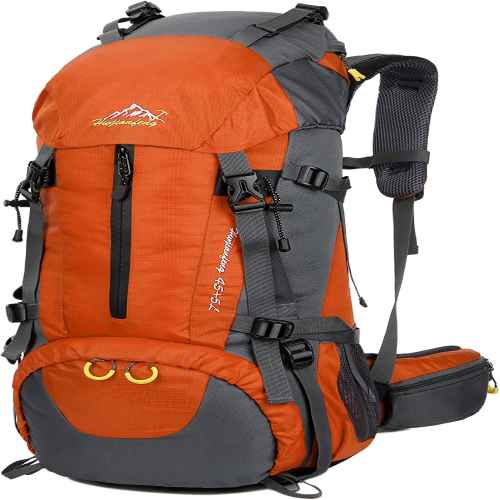
3. Choosing your destination
A. Researching your destination
When choosing your backpacking destination, it’s important to research the area, including the culture, climate, and local customs. This will help you to better prepare for your trip and ensure that you have a safe and enjoyable experience.
Researching the local laws and regulations, such as camping permits, is crucial in order to avoid any legal issues during your trip. It’s also important to look into the accessibility of resources such as food, water, and medical facilities in case of emergencies.
Planning ahead and being informed about your destination can greatly enhance your backpacking experience and make it a memorable and fulfilling adventure.
B. Deciding on the right time to visit
The time of year you choose to visit your destination can greatly impact your experience. Consider factors such as weather, peak tourist season, and local events when deciding on the right time to visit.
For example, visiting a beach destination during the summer months may result in crowded beaches and higher hotel prices, whereas visiting during the shoulder season can offer more manageable crowds and better deals.
Likewise, attending a local festival or event can add a unique cultural experience to your trip. Ultimately, careful consideration of timing can enhance your travel experience and create lasting memories.
C. Safety considerations
Safety should always be a top priority when traveling, especially when backpacking. Research the area you’re visiting and be aware of any potential safety concerns.
It’s also important to have adequate travel insurance and to take precautions such as keeping valuables safe and being aware of your surroundings.
Additionally, it’s a good idea to inform someone of your travel plans and to carry important identification and emergency contact information with you at all times.
Knowing some basic self-defense techniques and being able to communicate in the local language can also be beneficial in potentially dangerous situations.
Trust your instincts and don’t be afraid to seek help if you feel uneasy or threatened. By taking these simple steps, you can ensure a safe and enjoyable backpacking experience.
Also see: Tennessee Does it Snow?
4. Planning your trip
A. Creating a budget
When planning your backpacking trip, it’s important to create a budget. This will help you to stay on track and ensure that you have enough money to cover all of your expenses.
Consider all aspects of your trip, including accommodation, transportation, food, and activities. Additionally, research the cost of living in your destination to get an idea of what to expect.
Don’t forget to factor in any unexpected expenses such as emergency situations or changes in your itinerary. It’s also a good idea to have a contingency plan in case your budget gets derailed.
Having a budget will give you peace of mind and allow you to fully enjoy your backpacking experience.
B. Making a travel itinerary
Having a travel itinerary can help to ensure that you make the most of your time and experience all that your destination has to offer. Consider the activities and sights you want to see and plan your itinerary accordingly.
This will also help you prioritize and budget your time and resources effectively. Having a solid itinerary can also give you peace of mind and prevent last-minute stress or disappointment.
It’s important to be flexible, however, and allow for some spontaneous detours or changes along the way. After all, the best travel memories often come from unexpected adventures.
C. Deciding on accommodation
Accommodation is a crucial aspect of your backpacking trip, and there are a number of options to choose from. Consider factors such as cost, location, and safety when deciding on your accommodation.
Options include hostels, camping, and homestays. It’s also important to research the facilities and amenities offered by each option. Hostels often offer shared rooms and common areas.
While camping can provide a more immersive outdoor experience. Homestays offer the opportunity to live with a local family and gain cultural insights.
Ultimately, the best accommodation for you will depend on your personal preferences and travel style. So, take the time to weigh the pros and cons of each option before making a decision.
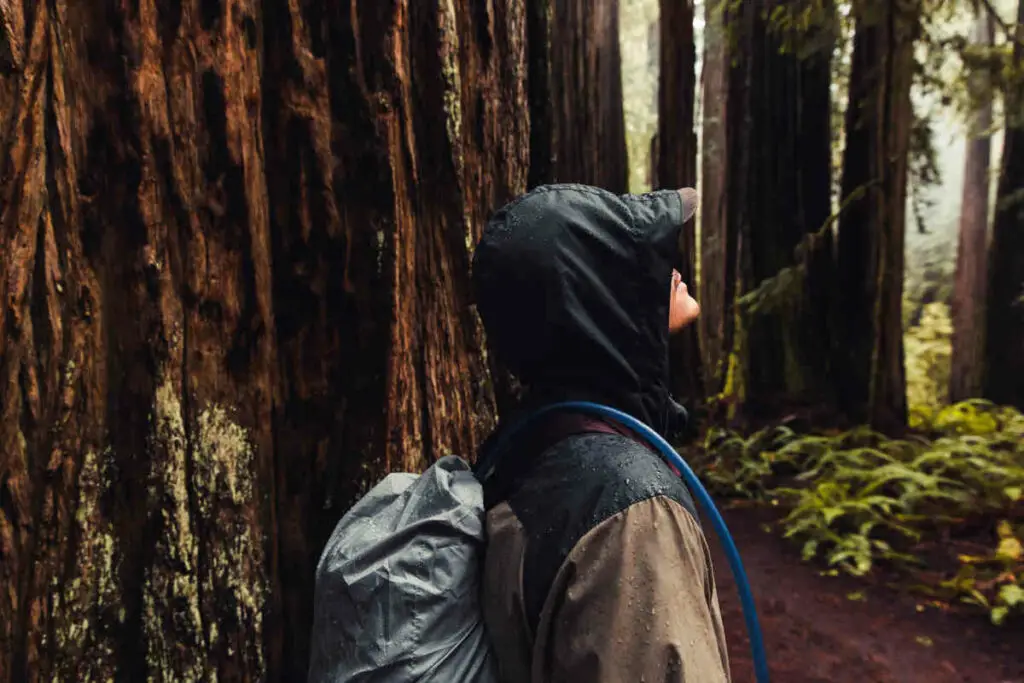
5. The backpacking experience
A. Meeting new people
One of the great benefits of backpacking is the opportunity to meet new people from all over the world. This can lead to lifelong friendships and create a sense of community on the road.
Backpacking allows you to immerse yourself in different cultures and gain a unique perspective on the world. You can try new foods, learn new languages, and understand the way of life in different countries.
This type of travel often leads to personal growth and a deeper appreciation for the world and its diverse communities.
Overall, backpacking is an enriching and life-changing experience that provides endless opportunities for self-discovery and growth.
B. Overcoming challenges
Backpacking can present challenges, such as navigating unfamiliar territory or dealing with language barriers. However, these challenges can also lead to personal growth and a sense of accomplishment.
By facing these challenges, you become more self-reliant and confident in your abilities. You also have the opportunity to immerse yourself in different cultures, meet new people, and create memories that will last a lifetime.
Backpacking can be a truly transformative experience, helping you to broaden your horizons and gain a new perspective on the world.
Whether you are traveling solo or with friends, the sense of adventure and freedom that comes with backpacking is truly unparalleled.
C. Creating lasting memories
Backpacking provides the opportunity to create lasting memories and have unique experiences that you’ll cherish for a lifetime. From breathtaking landscapes to cultural experiences.
Backpacking offers a chance to create memories that will stay with you forever. Additionally, backpacking can help you gain a sense of independence and self-reliance as you navigate new surroundings and tackle challenges on your own.
It also provides a chance to escape the daily grind and immerse yourself in nature, leading to a greater appreciation and connection with the environment.
Whether it’s a solo trip or with a group of friends, backpacking is a great way to broaden your horizons and make memories that will last a lifetime.
Also see: Flea Market in Atlanta
Best backpacking bags
Top pick
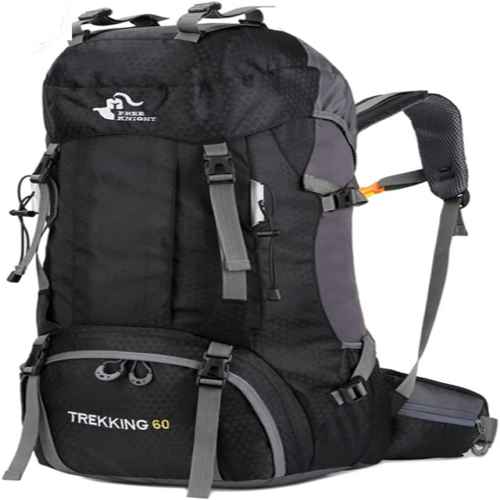
Editor’s choice
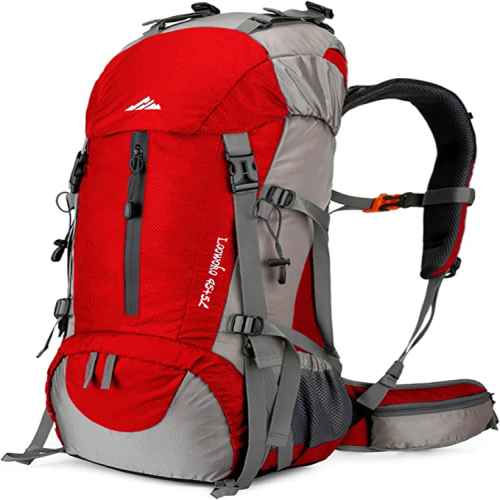
Best value
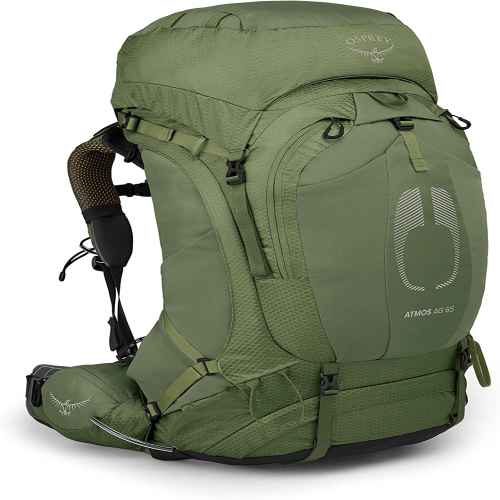
6. Tips for first-time backpackers
A. Packing light
When it comes to backpacking, it’s important to pack light. Consider only bringing the essentials and leaving behind any unnecessary items. This will make it easier to carry your backpack and ensure that you have enough space for souvenirs.
Additionally, consider the climate and terrain of your destination when packing. Make sure to bring appropriate clothing and gear for the weather conditions.
A good rule of thumb is to pack clothing that can be layered, as this allows you to adjust to changes in temperature.
It’s also important to bring a waterproof cover for your backpack in case of rain. By packing smart, you can have a more comfortable and enjoyable backpacking experience.
B. Staying safe
Safety should always be a top priority when traveling, especially for first-time backpackers. Be aware of your surroundings, keep valuables safe, and research the area you’re visiting to ensure that you have a safe and enjoyable experience.
This includes familiarizing yourself with local laws and customs, knowing emergency contact numbers, and having proper travel insurance.
It’s also important to have a plan for potential emergencies and to always trust your instincts.
By being prepared and taking necessary precautions, you can reduce the risk of dangerous situations and have a successful and memorable trip.
C. Being respectful of local culture
It’s important to be respectful of local culture when traveling. Research the customs and traditions of the area you’re visiting and take the time to learn about them.
This will help to ensure that you have a positive impact on the local community and create a memorable experience.
Additionally, make an effort to understand and follow local etiquette, such as dressing modestly, eating with your right hand, or removing your shoes before entering a temple.
By showing respect for the local culture, you will not only avoid causing offense but also gain the respect of the locals, making your travel experience all the more enriching.
Moreover, by embracing the local culture, you will have a deeper appreciation for the unique history, customs, and traditions of your destination.
D. Staying healthy
Staying healthy is important when traveling, especially when backpacking. Make sure to stay hydrated, eat well, and get enough rest to ensure that you have the energy to explore and make the most of your trip.
Additionally, it’s important to carry essential items such as a first aid kit, hand sanitizer, and any necessary medications. It’s also wise to research the destination’s health precautions and potential risks, such as food and water safety.
By taking these precautions, you can minimize the risk of illness and have a safe and enjoyable trip.
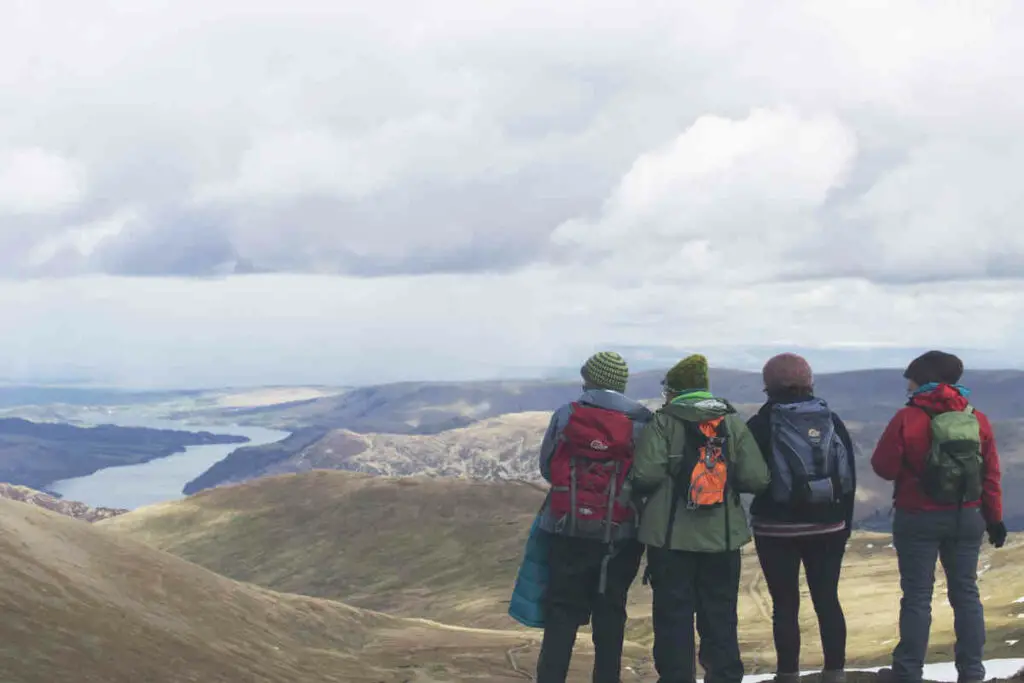
7. Popular backpacking destinations
A. Europe
Europe is a popular backpacking destination, with its rich history, diverse cultures, and stunning landscapes. From the mountains of Switzerland to the beaches of Spain, Europe has something to offer for every type of traveler.
Whether you’re interested in exploring ancient ruins, trying new cuisine, or simply relaxing in the sun, you’ll find what you’re looking for in Europe.
With affordable transportation options and a variety of budget-friendly accommodations, backpacking in Europe is accessible for travelers on a tight budget. So pack your bags and get ready for an unforgettable adventure!
B. Southeast Asia
Southeast Asia is a budget-friendly and exotic destination for backpackers, offering breathtaking scenery, unique cultures, and delicious cuisine. From the bustling cities of Thailand to the tropical islands of Indonesia, Southeast Asia is a must-visit for any backpacker.
Whether it’s exploring the ancient temples of Cambodia, scuba diving in the Philippines, or trekking through the jungle in Vietnam, there is always something new to discover in this region.
The friendly locals, affordable prices, and endless adventure opportunities make Southeast Asia a top destination for backpackers.
So pack your bags and get ready for an unforgettable journey through this diverse and fascinating part of the world.
C. South America
South America is a diverse and exciting destination for backpackers, offering a mix of vibrant cities, stunning natural landscapes, and rich cultural heritage.
From the Amazon rainforest to the Andes Mountains, South America has something to offer for every type of traveler.
Whether you’re into adventure sports, history, or just looking to relax on a beach, South America has it all. From the bustling streets of Rio de Janeiro to the ancient ruins of Machu Picchu, there is always something new to discover.
With its friendly locals, delicious cuisine, and affordable prices, South America is the perfect destination for backpackers looking for an unforgettable experience. So pack your bags and get ready for an adventure of a lifetime!
Also see: Best Beaches in El Salvador
Backpacking sleeping bag
Top pick

Editor’s choice
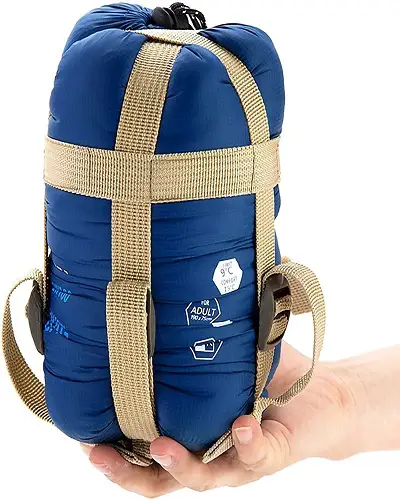
.
Best value

8. How to prepare for your trip
A. Physical preparation
Physical preparation is important when backpacking, as it often involves a lot of walking and hiking. Start exercising regularly and stretching to ensure that you’re physically prepared for your trip.
Additionally, it’s crucial to focus on strengthening your legs, back, and core muscles.
You should also consider carrying a lightweight backpack around your neighborhood to get used to the weight and to make sure you’re comfortable carrying it for extended periods of time.
Make sure to also hydrate well and get plenty of rest to ensure that you’re in top physical shape for your adventure.
B. Mental preparation
Mental preparation is just as important as physical preparation when it comes to backpacking. Consider the challenges you may face and think about how you’ll handle them.
It’s also important to have a positive and open mindset to ensure that you have a memorable and enjoyable experience. One way to ensure mental readiness is to make a checklist of essentials and familiarize yourself with the trail and terrain.
Pack light and prioritize items that will boost your confidence and comfort. It’s also helpful to have a backup plan and communicate it with a trusted friend or family member.
Remember to leave room for surprises and unexpected events, and try to embrace them as part of the adventure. Above all, stay positive and trust in your preparation and ability to handle any challenges that may arise.
C. Learning the language
Learning the language of the country you’re visiting can greatly enhance your backpacking experience. It can help you to navigate the country more easily, communicate with locals, and have a deeper understanding of the culture.
Speaking the local language can lead to more authentic and meaningful interactions with the people and communities you meet. It also shows respect for their culture and can help break down language barriers and foster new connections.
Whether you are ordering food, asking for directions, or simply striking up a conversation, learning the language can greatly enhance your travel experience.
Also see: Are There Bull Sharks in Lake Tahoe?
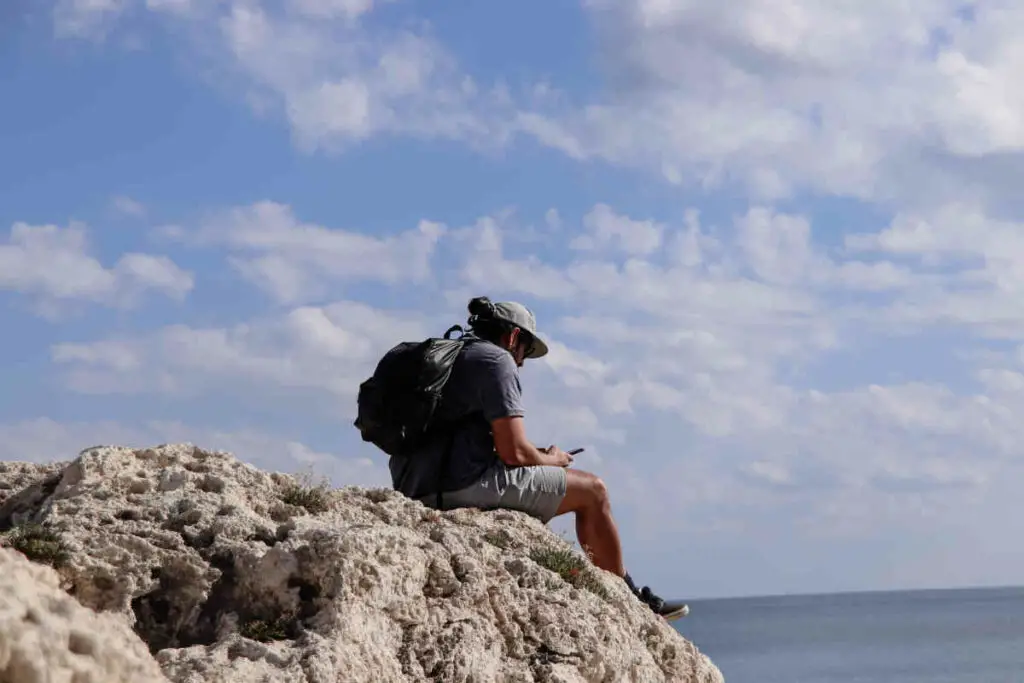
9. Backpacking on a budget
A. Finding cheap accommodation
There are a number of ways to save money on accommodation when backpacking, such as staying in hostels, camping, or homestays. Research your options and choose the one that works best for you and your budget.
Additionally, couchsurfing and house-sitting are other cost-effective options.
Utilize websites and apps to compare prices and read reviews from other travelers. Don’t be afraid to negotiate or ask for discounts, especially during off-peak seasons.
Remember, the goal is to find a comfortable and affordable place to rest your head at night, so be creative and resourceful in your search.
B. Eating on a budget
Eating on a budget is also important when backpacking. Consider cooking your own meals or finding street food, as these options can be cheaper and more authentic than eating in restaurants.
It’s also a good idea to plan out your meals and make a grocery list before heading to the store. This can help you avoid impulse buys and stick to your budget.
Additionally, packing non-perishable snacks such as nuts or dried fruit can help curb your hunger and save you money on food. Remember to stay hydrated by carrying a refillable water bottle, which can also save you money on drinks.
By being mindful of your food choices, you can stretch your budget and have a more enjoyable backpacking experience.
C. Cheap transportation options
Transportation can be one of the biggest expenses when backpacking, but there are ways to save money. Consider using public transportation, such as buses and trains, or opting for budget airlines when possible.
Another option is to consider hitchhiking or carpooling with other travelers. This not only saves money, but also allows you to meet new people and potentially make new friends on the road.
Additionally, consider walking or cycling as a mode of transportation in smaller towns and cities. This not only saves money, but also gives you a chance to explore the local area and get some exercise.
Communication devices for backpacking
Top pick

Editor’s choice
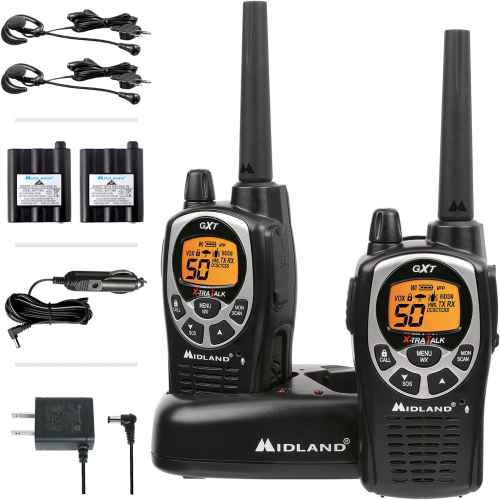
Best value

10. Making the most of your trip
A. Taking advantage of free activities
There are many free activities to enjoy when backpacking, such as visiting parks, exploring local markets, and taking walks. Take advantage of these free activities to save money and have a unique and memorable experience.
Backpacking offers the opportunity to immerse yourself in the local culture and meet new people. Try participating in community events or join a group hike to connect with others who share similar interests.
Don’t be afraid to step out of your comfort zone and try new things, as these often end up being some of the most memorable experiences while backpacking.
So, make the most of your trip by taking advantage of these free activities and creating unforgettable memories.
B. Exploring off the beaten path
Exploring off the beaten path can lead to some of the most memorable and unique experiences when backpacking. Consider venturing away from popular tourist spots and discovering hidden gems in your destination.
This can include visiting local markets, trying new food, or talking to locals to gain a deeper understanding of the culture. By stepping outside of your comfort zone and embracing new experiences, you’ll create memories that will last a lifetime.
You’ll also have the opportunity to see a side of the destination that most tourists never get to experience, making your trip truly special and one-of-a-kind.
C. Keeping a travel journal
Keeping a travel journal is a great way to document your backpacking experiences and create lasting memories. Write down your thoughts, experiences, and memories from each day to ensure that you never forget your backpacking adventure.
Additionally, a travel journal can also serve as a source of inspiration for future trips. Reading back on your past experiences can reignite the passion for travel and provide you with new ideas for places to visit.
Moreover, it can also serve as a way to reflect and appreciate the growth you have undergone during your journey. So, don’t hesitate, grab a journal and start documenting your backpacking journey today!
Also see: Beaches with the Clearest Water

FAQ
1. What makes backpacking a unique and superior way to travel?
Backpacking allows for greater flexibility, immersion in local culture, and cost-effectiveness compared to traditional travel methods.
2. How does backpacking differ from other types of travel like luxury or all-inclusive trips?
Backpacking is budget-conscious, self-sufficient travel with a focus on cultural experiences and minimal comforts.
3. What are some of the benefits of choosing backpacking over other forms of travel?
Backpacking allows for flexibility, affordability, cultural immersion, and unique experiences compared to other forms of travel.
4. Can backpacking be done on a budget, and how does it compare in terms of cost to other types of travel?
Yes, backpacking can be budget-friendly and often costs less than other forms of travel. It just requires careful planning and cost-saving techniques.
5. What are some of the challenges or potential drawbacks of backpacking, and how can they be addressed?
Backpacking has weather dependence, physical demands, gear/food expenses, safety concerns, and loneliness. Overcome by proper planning, physical training, cost-saving measures, informed decision making, and group trips.
Final thought
Backpacking offers a number of benefits, including cost-effectiveness, flexibility and spontaneity, and the opportunity to immerse oneself in the local culture.
It also provides physical and mental health benefits and allows for the creation of lasting memories. Backpacking is a unique and memorable way to travel and offers a chance to see the world in a new light.
Whether you’re a seasoned traveler or a first-time backpacker, it’s an experience that you won’t forget. We hope that this blog has inspired you to start your own backpacking adventure.
With its many benefits and the opportunity to create lasting memories, backpacking is truly the best way to travel. So, pack your backpack and start your journey today!
Also see: Sharks in Bora Bora

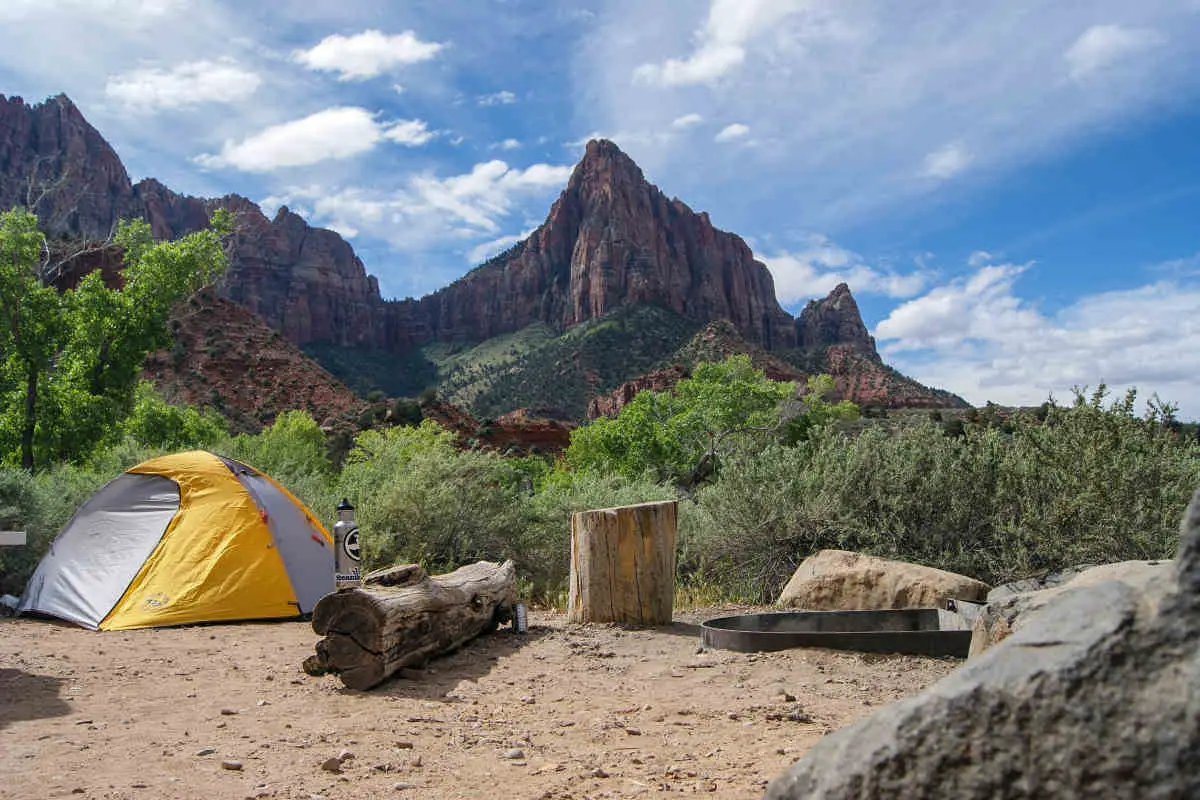


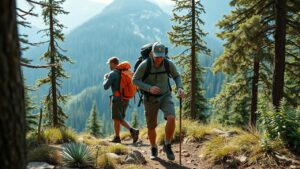
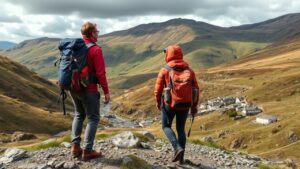



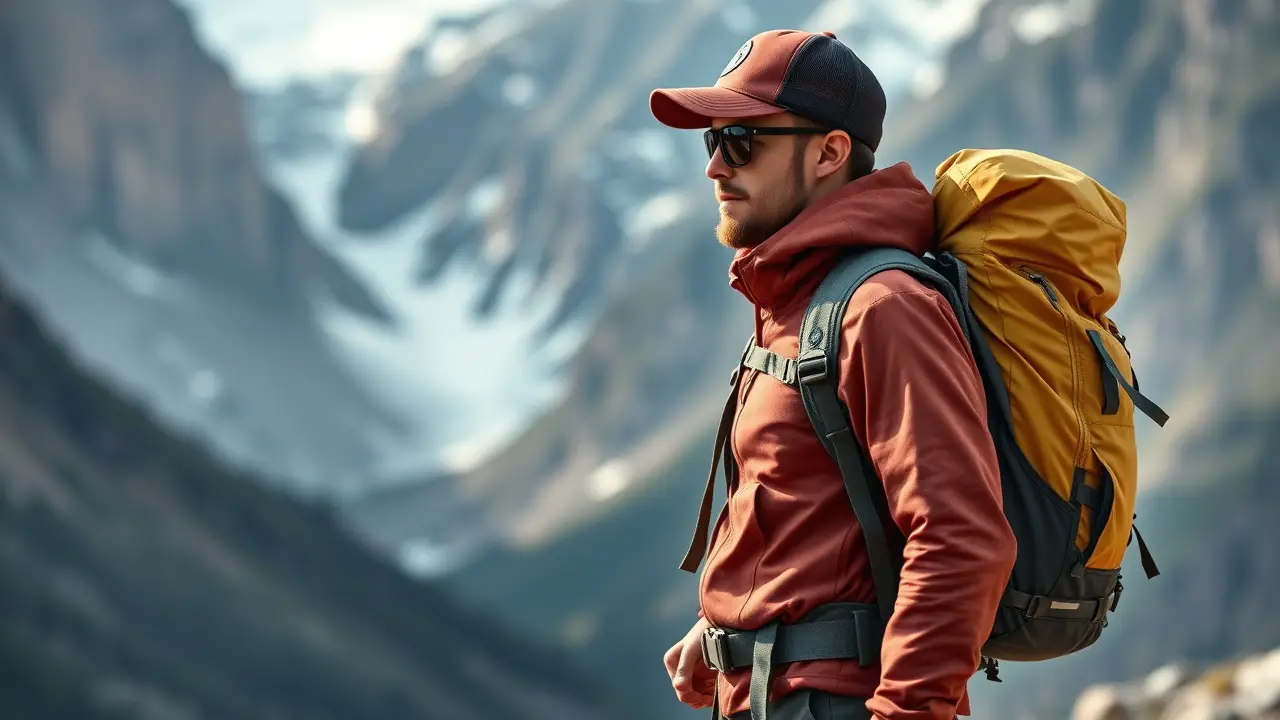
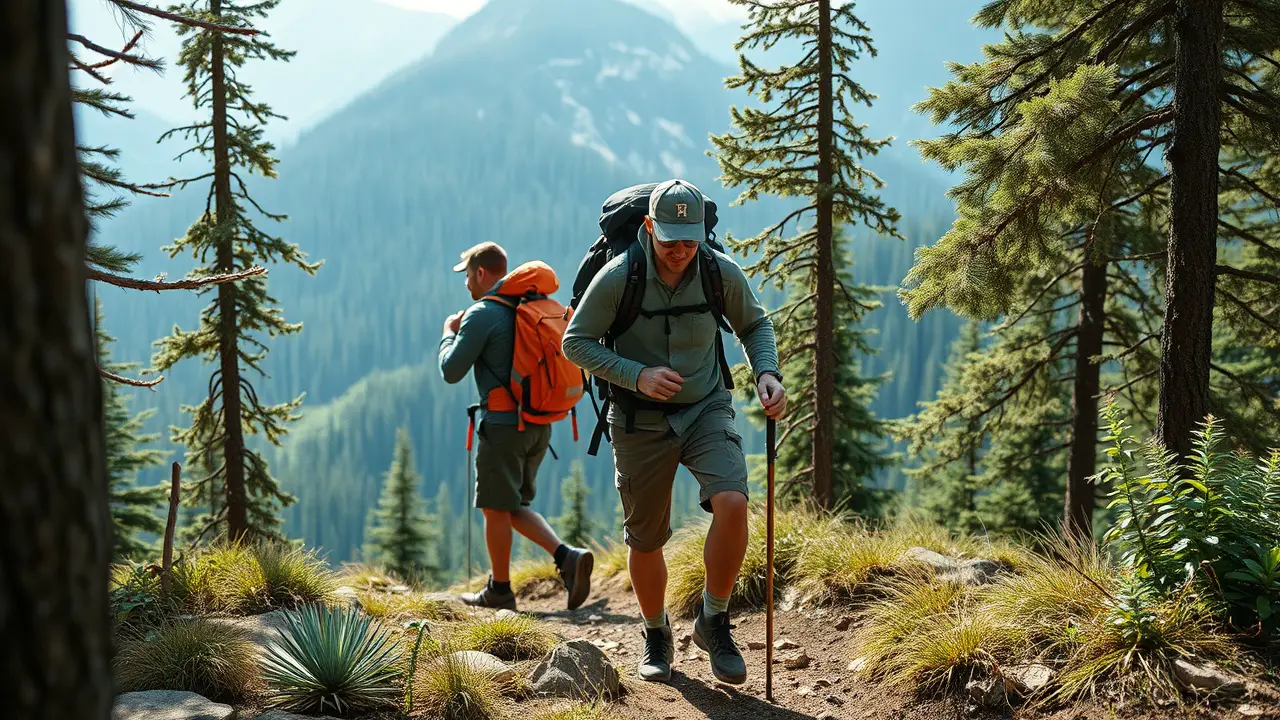
Leave a Reply